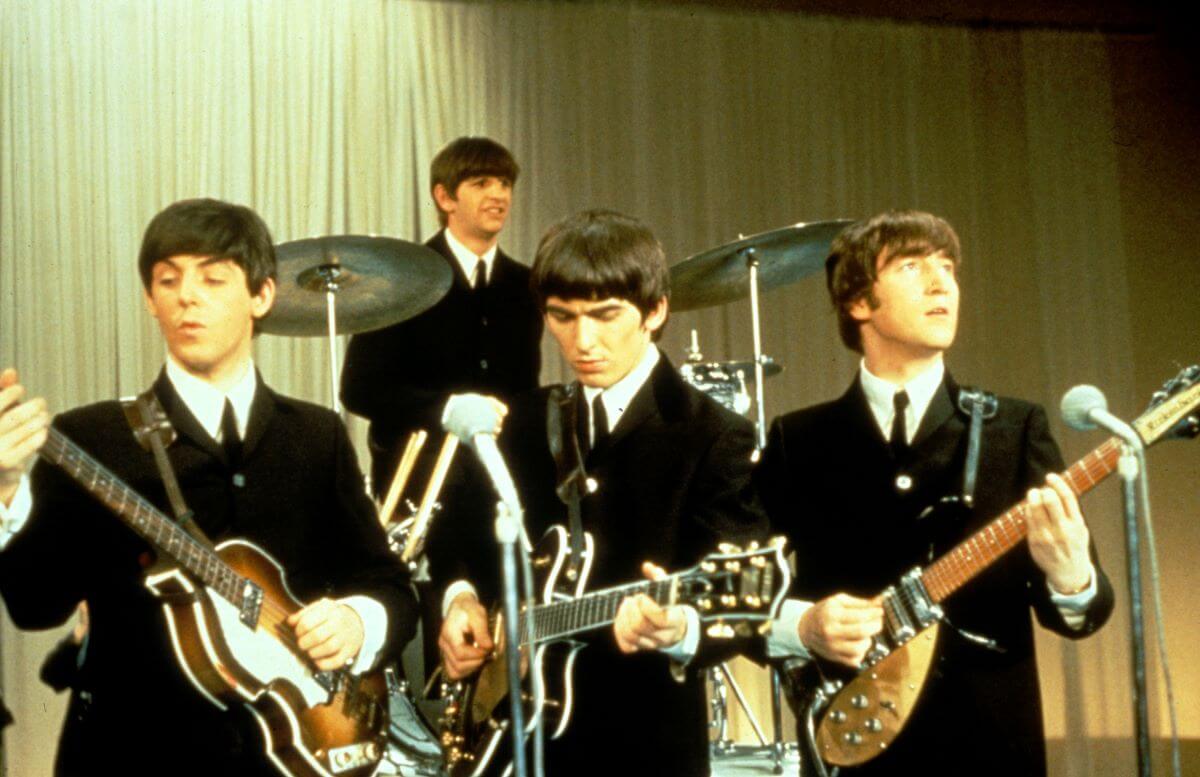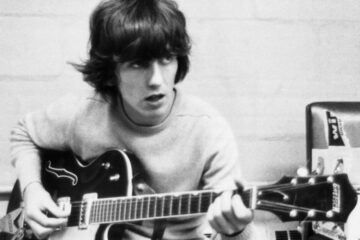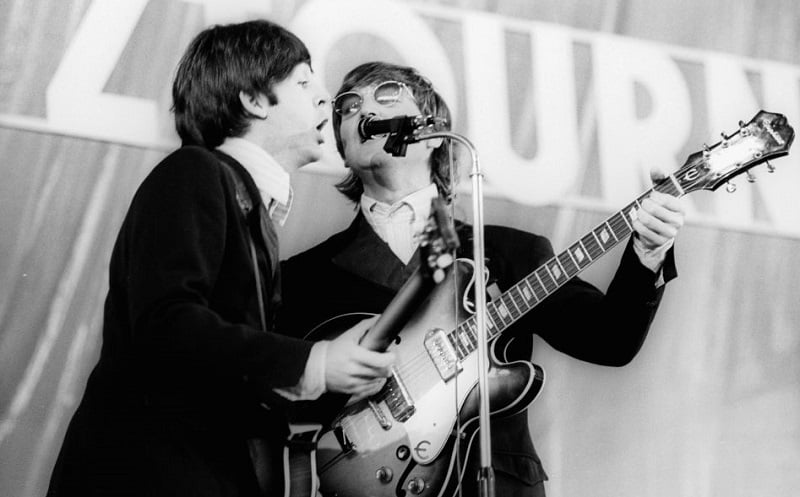“She Loves You,” “All My Loving,” “Love Me Do,” “P.S. I Love You,” “Can’t Buy Me Love,” “And I Love Her.” Are you noticing a theme here? The Beatles began their career singing about love and relationships. Even song titles that did not contain the L-word dealt with relationships and love. “I Want to Hold Your Hand,” “From Me to You,” and “Please Please Me” all focus on interpersonal relations.
Brian Wilson of The Beach Boys began looking inward to avoid simply writing about cars and girls. Songs like “In My Room” and “When I Grow Up to Be a Man” were both introspective and thriving on the charts. John Lennon and Paul McCartney had their share of success with songs about love, but they too wanted to expand their subject matter and move in different directions. One such song was “Nowhere Man.” Let’s take a look at the story behind the song.
He’s a real nowhere man
Sitting in his nowhere land
Making all his nowhere plans for nobody
Inspiration
Lennon and McCartney were very prolific in the years following their big breakthrough. Lennon was in search of inspiration for a song. In 1980, he told author David Sheff, “I’d spent five hours that morning trying to write a song that was meaningful and good, and I finally gave up and lay down. Then ‘Nowhere Man’ came, words and music, the whole damn thing, as I lay down.”
Doesn’t have a point of view
Knows not where he’s going to
Isn’t he a bit like you and me?
Nowhere man. Please listen
You don’t know what you’re missing
Nowhere man, the world is at your command
“Came Out in One Gulp”
As he searched for the subject of his next song, he just gave up. In 1971, Lennon told Rolling Stone magazine, “I was just going through this paranoia trying to write something and nothing would come out, so I just lay down and tried to not write, and then this came out, the whole thing came out in one gulp.”
He’s as blind as he can be
Just sees what he wants to see
Nowhere man, can you see me at all
Nowhere man, don’t worry
Take your time, don’t hurry
Leave it all ’til somebody else
Lends you a hand
Ah, la, la, la, la
Then He Made It About Himself
Lennon turned to the idea of making the character of the song be himself. In 1967, he told journalist Hunter Davies, “I can get up and start doing nothing straight away. I just sit on the step, look into space, and think until it’s time to go to bed. … If I am on my own for three days, doing nothing, I almost leave myself completely. I’m just not here. … I’m up there watching myself, or I’m at the back of my head. I can see my hands and realize they’re moving, but it’s a robot who’s doing it. … I was just sitting, trying to think of a song, and I thought of myself sitting there, doing nothing, and going nowhere. Once I’d thought of that, it was easy. It all came out. No, I remember now. I’d actually stopped trying to think of something. Nothing would come. I was cheesed off and went for a lie down, having given up. Then I thought of myself as ‘Nowhere Man’—sitting in his nowhere land.”
Doesn’t have a point of view
Knows not where he’s going to
Isn’t he a bit like you and me?
Nowhere man, please listen
You don’t know what you’re missing
Nowhere man, The world is at your command
Ah, la, la, la, la
The Final Word
McCartney told author Barry Miles, “When I came out to write with him the next day, he was kipping on the couch, very bleary-eyed. It was really an anti-John song. He told me later, he didn’t tell me then. He said he’d written it about himself, feeling like he wasn’t going anywhere. I think it was actually about the state of his marriage. It was in a period where he was a bit dissatisfied with what was going on; however, it led to a very good song. He treated it as a third-person song, but he was clever enough to say, ‘Isn’t he a bit like you and me?’—’Me’ being the final word.”
He’s a real nowhere man
Sitting in his nowhere land
Making all his nowhere plans for nobody
Making all his nowhere plans for nobody
Making all his nowhere plans for nobody
More Treble
The Beatles recorded the song on October 21st and 22nd, 1965. In The Complete Beatles Recording Sessions, McCartney said, “We were always forcing them into things they didn’t want to do. ‘Nowhere Man’ was one. I remember we wanted very treble-y guitars, which they are, they’re among the most treble-y guitars I’ve ever heard on record. The engineer said, ‘All right, I’ll put full treble on it,’ and we said, ‘That’s not enough,’ and he said, ‘But that’s all I’ve got, I’ve only got one pot, and that’s it!’ and we replied, ‘Well, put that through another lot of faders and put full treble up on that. And if that’s not enough we’ll go through another lot of faders and …’ so we were always doing that, forcing them. They said, ‘We don’t do that,’ and we would say, ‘Try it. Just try it for us. If it sounds crappy, OK, we’ll lose it. But it just might sound good.’
“We were always pushing ahead: louder, further, longer, more, different,” he continued. “I always wanted things to be different because we knew that people, generally, always want to move on, and if we hadn’t pushed them, the guys would have stuck by the rule books and still been wearing ties. Anyway, you’d then find, ‘Oh, it worked!’ and they were secretly glad because they had been the engineer who’d put three times the allowed value of treble on a song. I think they were quietly proud of all those things.”



